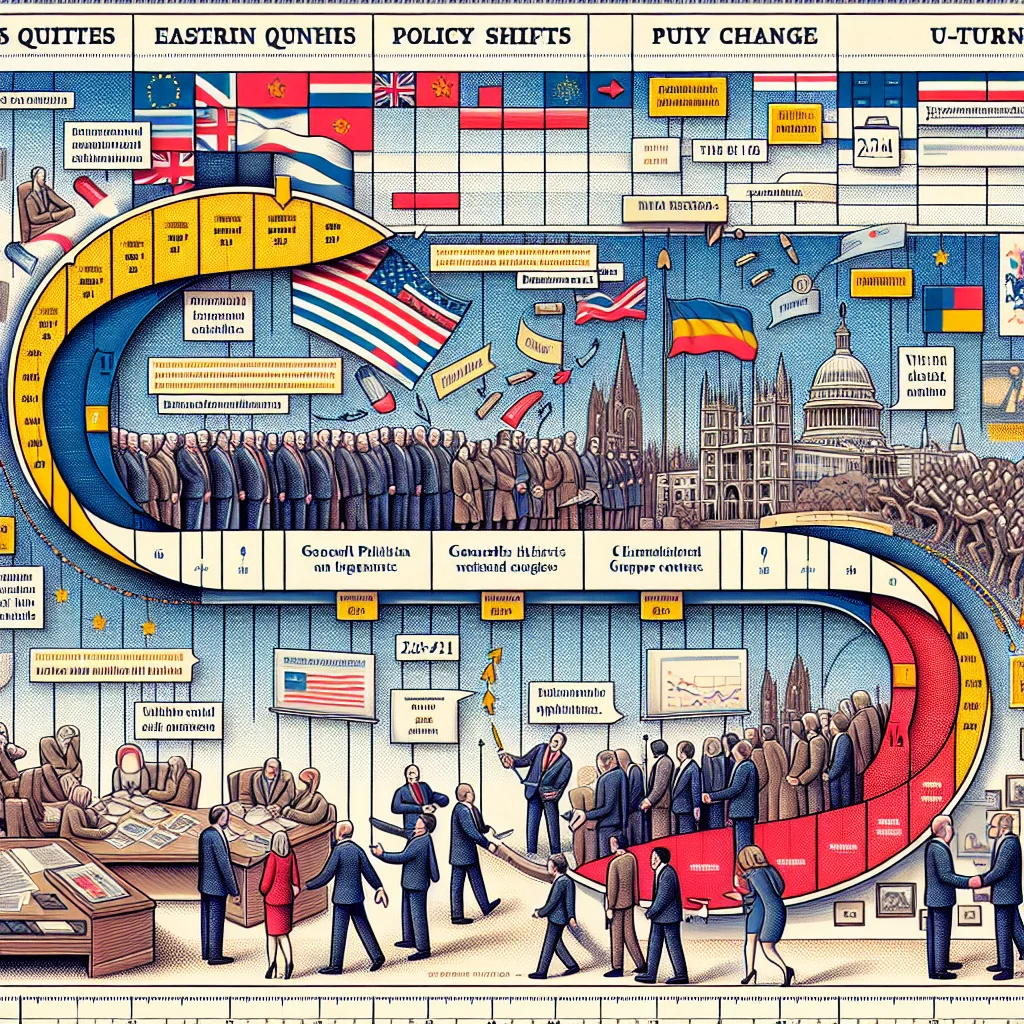
Former President Donald Trump’s statements on Russia and Ukraine have been under intense scrutiny, especially as the war in Ukraine enters its fourth year and the 2024 U.S. presidential election cycle concluded. Trump’s evolving rhetoric, policy stances, and public remarks have shaped both domestic debate and international perceptions. Below is a timeline highlighting key moments, quotes, and notable shifts in Trump’s approach to Russia and Ukraine.
2016: Campaign Praise for Putin
- July 2016: Trump calls Russian President Vladimir Putin “a strong leader,” drawing bipartisan criticism. He tells ABC News, “If he says great things about me, I’m going to say great things about him.”
- July 2016: During a press conference, Trump famously says, “Russia, if you’re listening, I hope you’re able to find the 30,000 emails that are missing.”
2017–2019: Presidency and Initial Ukraine Policy
- 2017: Trump repeatedly expresses skepticism about U.S. intelligence findings on Russian election interference, stating, “I believe that President Putin really feels—and he feels strongly—that he did not meddle in our election.”
- 2019: Trump’s July phone call with Ukrainian President Volodymyr Zelenskyy leads to an impeachment inquiry. He urges Zelenskyy to “do us a favor,” referencing investigations into Joe Biden and his son Hunter.
2020: Mixed Messaging on Russian Aggression
- February 2020: Facing questions about Russian bounties on U.S. troops in Afghanistan, Trump calls the reports “a hoax.”
- October 2020: During a presidential debate, Trump says, “Nobody has been tougher on Russia than I have,” pointing to sanctions and the expulsion of Russian diplomats.
2022: Russian Invasion of Ukraine
- February 2022: On the eve of Russia’s full-scale invasion, Trump describes Putin’s moves as “genius” and “savvy,” prompting backlash.
- March 2022: Trump clarifies his stance, saying, “Putin is playing Biden like a drum. It wouldn’t have happened under my watch.”
- April 2022: Trump claims he could end the war “within 24 hours” if re-elected, though he offers few specifics.
2023: Calls for Negotiation and Critique of U.S. Aid
- February 2023: Trump criticizes continued U.S. military aid to Ukraine, calling it “endless,” and urges European nations to “do more.”
- July 2023: At a town hall, Trump refuses to say whether he wants Ukraine or Russia to win, stating, “I want everybody to stop dying.”
2024: Election Year Shifts and U-Turns
- January 2024: Trump promises to push for peace talks, suggesting Ukraine may have to “make some concessions.”
- March 2024: After criticism, Trump asserts, “I stand with the people of Ukraine,” but continues to oppose additional military aid packages.
- July 2024: In the final presidential debate, Trump claims, “I will end the war and restore stability to Europe,” without outlining a concrete plan.
2025: Post-Election Positioning
- January 2025: Following the inauguration, Trump calls for a “comprehensive review” of U.S. involvement in Ukraine, signaling potential changes to American policy.
- June 2025: Trump’s administration faces Congressional pushback after proposing cuts to Ukraine aid, while continuing to advocate for direct negotiations between Kyiv and Moscow.
Trump’s statements, from early praise of Putin to shifting positions on U.S. aid to Ukraine, have reflected a mix of transactional diplomacy, skepticism toward traditional alliances, and frequent rhetorical reversals. As U.S. foreign policy continues to evolve under his renewed leadership, Trump’s approach to Russia and Ukraine remains a focal point of international attention and domestic debate.












